Sociological analysis of climate change and environmental crisis
(Relevant for Sociology Optional for Civil Services Examination)

Paper 1: Social Change In Modern Society
Paper 2 Challenges Of Social Transfromation
Climate Change
Context: Climate change includes both global warming driven by human-induced emissions of greenhouse gases and the resulting large-scale shifts in weather patterns.
Though there have been previous periods of climatic change, since the mid-20th century humans have had an unprecedented impact on Earth’s climate system and caused change on a global scale.
Sociological analysis of reasons and impact of climate change
- THE GIDDEN’S PARADOX: This paradox states that, as people experience no clear tangible effects of dangers of unchecked global warming in their everyday lives, they will not change there environmentally damaging actions.
- Treadmill of Production: Schimberg says that the industrial capitalism sets societies on a treadmill of production leading to environmental damage, using up natural resources at a rapid rate and generating high level of pollution and waste.
- Global Risk Society: Ulrich Beck argues that this distributional conflict is losing its significance as environmental risks rise to prominence. He managed. He says that more people are beginning to realize that their fight for a share of the wealth cake is futile if the cake is poisoned as a result of pollution and environmental damage. In the risk society the unknown and unintended consequences to be a dominant force in history and society.
- Environmental Crisis and gender regimes: Sylvia Walby argues that environmental crisis has different impact on women and it affect women disproportionately.
- Pani bahu in Maharstra is consequence of environmental risk
- Gadgil and Guha argue that “it is hardly surprising that the environmental movement in India has not given sufficient thought to the larger processes that are contributing both to ecological deterioration and to social strife.” Indeed, the environmental policies in India are still colonial in nature and have no interest in the sustainable development of the larger ecosystem.
- The most of Indian poor and socially marginalised people are still dependent on the natural environment of their locality to meet their basic material needs, which referred to as ecosystem people. These ecosystem people have been largely exploited by biosphere people which are better-off urban dwellers in a colonial manner
- Ecological modernization theory: according to this perspective business as usual is not possible but they also rejects radical environmentalist solutions involving de industrialization. They talk about five social and institutional structures to be modified ecologically :
- science and technology: to work towards the invention and delivery of sustainable technologies
- markets and economic agents: to introduce incentives for environmentally benign outcomes
- nation-states: to shape market conditions which allow this to happen
- social movements: to put pressure on business and the state to continue moving in an ecological direction
- ecological ideologies: to assist in persuading more people to get involved in the ecological modernization of society (Mol and Sonnenfeld ).
- Ecological citizenship involves new obligations to non-human animals, to future generations of human beings and to maintaining the integrity of the natural environment. Obligations to animals means reconsidering human uses of animals that infringe their right to lead a natural life and express their natures. Hence, vivisection, hunting, farming methods, breeding and even pet-keeping would all need to be reassessed. Ecological citizenship’s obligation to future generations of people means working towards sustainability over a long time period.
Reasons For Climate Change and environmental crisis
- Greenhouse Gas Emissions: The release of greenhouse gases, such as carbon dioxide (CO2), methane (CH4), and nitrous oxide (N2O), primarily from human activities like burning fossil fuels, deforestation, and industrial processes, traps heat in the atmosphere, leading to a warming effect.
- Deforestation: Large-scale clearing of forests reduces the planet’s capacity to absorb CO2, contributing to higher atmospheric carbon levels and disrupted ecosystems.
- Burning of Fossil Fuels: The combustion of coal, oil, and natural gas for energy produces significant CO2 emissions, a major driver of global warming.
- Industrial Processes: Various industrial activities release greenhouse gases, including fluorinated gases used in manufacturing, contributing to the overall warming of the atmosphere.
- Agricultural Practices: Agriculture is a source of methane and nitrous oxide emissions from livestock digestion, manure management, and the use of nitrogen-based fertilizers.
- Land Use Changes: Urbanization and changes in land use alter natural carbon storage systems and contribute to the overall carbon imbalance in the atmosphere.
Impact of Climate Change
- Displacement and Migration: Rising sea levels, extreme weather events, and environmental degradation can lead to forced displacement and migration of communities, resulting in social disruptions and potential conflicts.
- Health Risks: Climate change contributes to the spread of diseases like malaria and dengue fever, worsens air quality, and increases the frequency of heat-related illnesses, disproportionately affecting vulnerable populations.
- Food Security: Changing weather patterns and extreme events can disrupt agricultural productivity, leading to food shortages and price fluctuations, which particularly impact impoverished communities.
- Water Scarcity: Altered precipitation patterns and melting glaciers can lead to water scarcity, affecting drinking water supplies, sanitation, and hygiene, and disproportionately affecting marginalized groups.
- Livelihood Challenges: Impacts on agriculture, fisheries, and forestry can undermine livelihoods and traditional ways of life, pushing communities to adapt or seek alternative sources of income.
- Social Inequality: Climate change exacerbates existing social inequalities by disproportionately affecting low-income communities, marginalized groups, and vulnerable populations who have limited resources to cope with its effects.
- Conflict and Migration: Resource scarcity caused by climate change can contribute to conflicts over land, water, and other essentials, potentially leading to increased migration and instability.
- Cultural Disruption: Climate change can damage cultural heritage sites, erode cultural practices tied to the environment, and threaten indigenous knowledge systems.
- Community Resilience: Communities must adapt to changing conditions, requiring adjustments in infrastructure, social systems, and governance to build resilience and ensure equitable access to resources.
- Psychological and Mental Health: Increasing exposure to climate-related disasters and uncertainties can lead to stress, anxiety, and mental health issues within communities.
These social impacts of climate change underscore the urgent need for comprehensive mitigation and adaptation strategies to minimize the adverse effects on societies.
Conclusion
The sociological imagination offers a profound awareness of the human authorship or ‘social creation’ of social institutions, which helps us avoid being resigned to an attitude of despair in the face of such global problems. Instead, it shows that there exists at least the possibility of exerting more control over the destiny of humanity to an extent that was simply unimaginable to previous generations.
Sample Questions for UPSC Sociology Optional Paper:
- What does “Gidden’s Paradox” imply in the context of climate change?
Answer: It suggests that people are unlikely to change their environmentally damaging behaviors if they do not experience immediate, tangible effects of climate change. - What is “Treadmill of Production”?
Answer: A theory that industrial capitalism drives societies into an unsustainable loop of production, resource consumption, and environmental degradation. - Define “Global Risk Society” according to Ulrich Beck.
Answer: A society where traditional conflicts over wealth distribution lose prominence as collective environmental risks take center stage. - How does climate change exacerbate social inequality?
Answer: It disproportionately affects vulnerable and marginalized communities who have fewer resources to adapt or cope. - What does the term “Pani bahu” in Maharashtra signify?
Answer: It refers to the burden of water scarcity predominantly borne by women, making them responsible for water collection. - How are environmental policies in India described as per Gadgil and Guha?
Answer: They are said to be colonial in nature, neglecting sustainable development and contributing to ecological and social strife. - What is “Ecological Modernization”?
Answer: A theory that advocates for a sustainable balance between industrialization and environmental protection by modifying various social and institutional structures. - What does “Ecological Citizenship” entail?
Answer: It involves obligations to non-human animals, future human generations, and the natural environment to maintain sustainability and ecological integrity. - How does climate change impact psychological health?
Answer: Increases stress, anxiety, and other mental health issues due to the uncertainties and disruptions caused by climate-related disasters. - What does Sylvia Walby argue about the environmental crisis and gender?
Answer: She argues that environmental crises disproportionately affect women.
Related Blogs
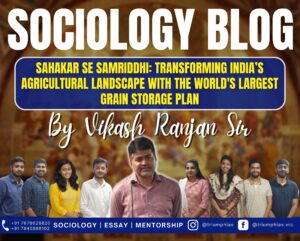 |
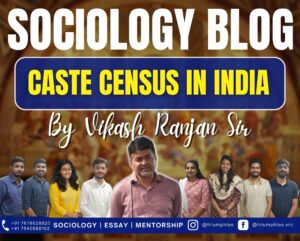 |

To master these intricacies and fare well in the Sociology Optional Syllabus, aspiring sociologists might benefit from guidance by the Best Sociology Optional Teacher and participation in the Best Sociology Optional Coaching. These avenues provide comprehensive assistance, ensuring a solid understanding of sociology’s diverse methodologies and techniques.
META TAGS:
Climate Change, Pani Bahu, Sociology, Sociological Analysis of Climate Change, Environmental Crisis, Greenhouse Gas Emissions, Deforestation, Fossil Fuels, Social Impact, Displacement, Health Risks, Food Security, Water Scarcity, Livelihood Challenges, Social Inequality, Cultural Disruption, Psychological Effects, Sociological Analysis, Ecological Modernization, Treadmill of Production, Global Risk Society, Ecological Citizenship, Adaptation Strategies, Mitigation Strategies, Sociological analysis of climate change and environmental crisis
Explore Sociology Optional Syllabus
Paper-1
FUNDAMENTALS OF SOCIOLOGY
- Sociology – The Discipline
- Sociology as Science:
- Research Methods and Analysis:
- Sociological Thinkers:
- Karl Marx- Historical materialism, mode of production, alienation, class struggle.
- Emile Durkheim- Division of labour, social fact, suicide, religion and society.
- Max Weber- Social action, ideal types, authority, bureaucracy, protestant ethic and the spirit of capitalism.
- Talcott Parsons- Social system, pattern variables.
- Robert K. Merton- Latent and manifest functions, conformity and deviance, reference groups.
- Mead – Self and identity.
- Stratification and Mobility:
- Concepts- equality, inequality, hierarchy, exclusion, poverty and deprivation.
- Theories of social stratification- Structural functionalist theory, Marxist theory, Weberian theory.
- Dimensions – Social stratification of class, status groups, gender, ethnicity and race.
- Social mobility- open and closed systems, types of mobility, sources and causes of mobility.
- Works and Economic Life:
- Social organization of work in different types of society- slave society, feudal society, industrial /capitalist society
- Formal and informal organization of work.
- Labour and society.
- Politics and Society:
- Sociological theories of power.
- Power elite, bureaucracy, pressure groups, and political parties.
- Nation, state, citizenship, democracy, civil society, ideology.
- Protest, agitation, social movements, collective action, revolution.
- Religion and Society:
- Sociological theories of religion.
- Types of religious practices: animism, monism, pluralism, sects, cults.
- Religion in modern society: religion and science, secularization, religious revivalism, fundamentalism.
- Systems of Kinship:
- Family, household, marriage.
- Types and forms of family.
- Lineage and descent.
- Patriarchy and sexual division of labour.
- Contemporary trends.
- Social Change in Modern Society:
- Sociological theories of social change.
- Development and dependency.
- Agents of social change.
- Education and social change.
- Science, technology and social change.
Paper-2
INDIAN SOCIETY: STRUCTURE AND CHANGE
INTRODUCING INDIAN SOCIETY
- Perspectives on the study of Indian society:
- Indology (GS. Ghurye).
- Structural functionalism (M N Srinivas).
- Marxist sociology (A R Desai).
- Impact of colonial rule on Indian society :
- Social background of Indian nationalism.
- Modernization of Indian tradition.
- Protests and movements during the colonial period.
- Social reforms.
SOCIAL STRUCTURE
- Perspectives on the study of Indian society:
- The idea of Indian village and village studies.
- Agrarian social structure – evolution of land tenure system, land reforms.
- Caste System:
- Perspectives on the study of caste systems: GS Ghurye, M N Srinivas, Louis Dumont, Andre Beteille.
- Features of caste system.
- Untouchability – forms and perspectives.
- Tribal communities in India
- Definitional problems.
- Geographical spread.
- Colonial policies and tribes.
- Issues of integration and autonomy.
- Social Classes in India:
-
- Agrarian class structure.
-
-
- Industrial class structure.
- Middle classes in India.
-
- Systems of Kinship in India:
- Lineage and descent in India.
- Types of kinship systems.
- Family and marriage in India.
- Household dimensions of the family.
- Patriarchy, entitlements and sexual division of labour
- Religion and Society:
- Religious communities in India.
- Problems of religious minorities.
- Patriarchy, entitlements and sexual division of labour
SOCIAL CHANGES IN INDIA
- Visions of Social Change in India:
- Idea of development planning and mixed economy
- Constitution, law and social change.
- Education and social change.
- Rural and Agrarian transformation in India:
- Programmes of rural development, Community Development Programme, cooperatives,poverty alleviation schemes
- Green revolution and social change.
- Changing modes of production in Indian agriculture.
- Problems of rural labour, bondage, migration.
3. Industrialization and Urbanisation in India:
-
- Evolution of modern industry in India.
- Growth of urban settlements in India.
- Working class: structure, growth, class mobilization.
- Informal sector, child labour
- Slums and deprivation in urban areas.
4. Politics and Society:
-
- Nation, democracy and citizenship.
- Political parties, pressure groups , social and political elite
- Regionalism and decentralization of power.
- Secularization
5. Social Movements in Modern India:
-
- Peasants and farmers movements.
- Women’s movement.
- Backward classes & Dalit movement.
- Environmental movements.
- Ethnicity and Identity movements.
6. Population Dynamics:
-
- Population size, growth, composition and distribution
- Components of population growth: birth, death, migration.
- Population policy and family planning.
- Emerging issues: ageing, sex ratios, child and infant mortality, reproductive health.
7. Challenges of Social Transformation:
-
- Crisis of development: displacement, environmental problems and sustainability
- Poverty, deprivation and inequalities.
- Violence against women.
- Caste conflicts.
- Ethnic conflicts, communalism, religious revivalism.
- Illiteracy and disparities in education.
Why Vikash Ranjan’s Classes for Sociology?
Proper guidance and assistance are required to learn the skill of interlinking current happenings with the conventional topics. VIKASH RANJAN SIR at TRIUMPH IAS guides students according to the Recent Trends of UPSC, making him the Best Sociology Teacher for Sociology Optional UPSC.
At Triumph IAS, the Best Sociology Optional Coaching platform, we not only provide the best study material and applied classes for Sociology for IAS but also conduct regular assignments and class tests to assess candidates’ writing skills and understanding of the subject.
Choose The Best Sociology Optional Teacher for IAS Preparation?
At the beginning of the journey for Civil Services Examination preparation, many students face a pivotal decision – selecting their optional subject. Questions such as “which optional subject is the best?” and “which optional subject is the most scoring?” frequently come to mind. Choosing the right optional subject, like choosing the best sociology optional teacher, is a subjective yet vital step that requires a thoughtful decision based on facts. A misstep in this crucial decision can indeed prove disastrous.
Ever since the exam pattern was revamped in 2013, the UPSC has eliminated the need for a second optional subject. Now, candidates have to choose only one optional subject for the UPSC Mains, which has two papers of 250 marks each. One of the compelling choices for many has been the sociology optional. However, it’s strongly advised to decide on your optional subject for mains well ahead of time to get sufficient time to complete the syllabus. After all, most students score similarly in General Studies Papers; it’s the score in the optional subject & essay that contributes significantly to the final selection.
“A sound strategy does not rely solely on the popular
Opinion of toppers or famous YouTubers cum teachers.”
It requires understanding one’s ability, interest, and the relevance of the subject, not just for the exam but also for life in general. Hence, when selecting the best sociology teacher, one must consider the usefulness of sociology optional coaching in General Studies, Essay, and Personality Test.
The choice of the optional subject should be based on objective criteria, such as the nature, scope, and size of the syllabus, uniformity and stability in the question pattern, relevance of the syllabic content in daily life in society, and the availability of study material and guidance. For example, choosing the best sociology optional coaching can ensure access to top-quality study materials and experienced teachers. Always remember, the approach of the UPSC optional subject differs from your academic studies of subjects. Therefore, before settling for sociology optional, you need to analyze the syllabus, previous years’ pattern, subject requirements (be it ideal, visionary, numerical, conceptual theoretical), and your comfort level with the subject.
This decision marks a critical point in your UPSC – CSE journey, potentially determining your success in a career in IAS/Civil Services. Therefore, it’s crucial to choose wisely, whether it’s the optional subject or the best sociology optional teacher. Always base your decision on accurate facts, and never let your emotional biases guide your choices. After all, the search for the best sociology optional coaching is about finding the perfect fit for your unique academic needs and aspirations.
Follow us :
🔎 https://www.instagram.com/triumphias
🔎https://www.youtube.com/c/TriumphIAS
https://t.me/VikashRanjanSociology
Find More Blogs
|
Scope of the subject and comparison with other social sciences |
|||
|
|
|
|
Modernity and social changes in Europe |

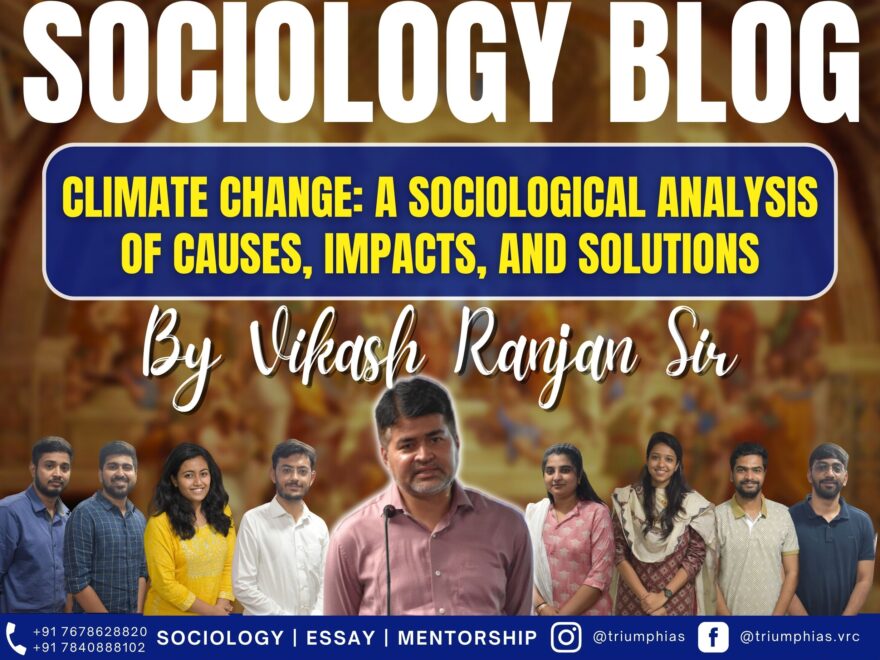
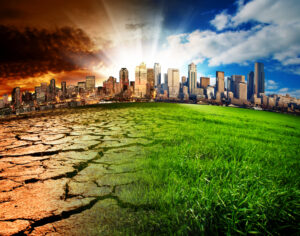
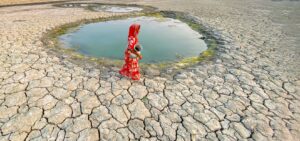
5 comments